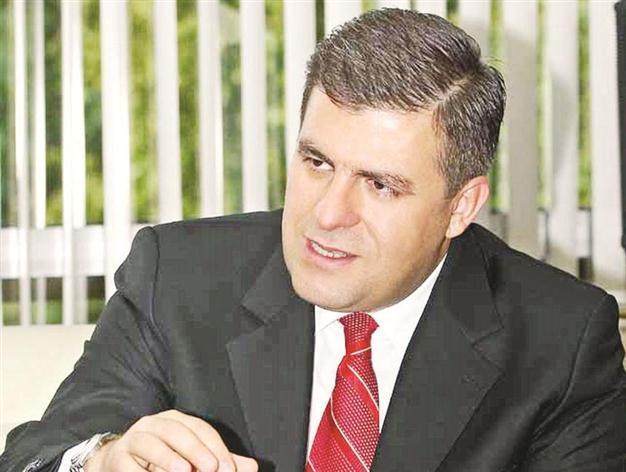Lenders demand interest for reserve deposits
ISTANBUL - Hürriyet Daily News

Turkey’s savings are insufficient, says Tevfik Bilgin, head of the Banks Association of Turkey.
Hürriyet photo
Turkey’s Central Bank should stop its zero interest rate policy for required reserves collected from lenders, which causes a significant loss in the banking sector, according to the general managers of several lenders.
“The recent regulations placed a burden of $8.06 billion on Turkish banks,” said the Banks Association of Turkey (TKBB) in a report distributed to the media during the closed press meeting with Ali Babacan, Turkey’s deputy prime minister, in Istanbul.
The association said the banks have lost nearly $4 billion due to the increased reserved ratio and another $1.2 billion due to the zero interest rate on reserves.
Regulation changes this year, including required reserve hikes and additional branch taxes, caused an $8.06 billion loss to the sector, the association said.
“Paying the interest rate to the lenders for the reserves is not on the agenda for Turkey’s economy administration,” said Babacan, responding to questions by journalists after the meeting.
“We are not seeing [required reserves] as a burden on the sector,” said Babacan, saying the sum collected from lenders was rather “a preparation for difficult times.”
“The reserves are secured in our Central Bank and if there would be further need, the bank might decrease the reserve rate ratio and continue to support banks,” he said.
Low saving ratio General managers of the banks have also warned about the country’s relatively low saving ratio, which is below the emerging countries average. “Savings are needed to make investments to grow, but still the saving ratio is insufficient,” said TKBB.
Turkey’s saving ratio fell short with 12 percent of gross domestic product, while the average of emerging countries reached 34 percent this year, according to TKBB.
Turkey’s investment rate is 22.5 percent of the GDP while the emerging nation’s average is nearly 32 percent.
“Currently, the saving ratio of the country is 12 percent of the GDP. This is the lowest in Turkey’s history,” Babacan said Dec. 23, speaking at another Istanbul meeting at the Confederation of Businessmen and Industrialists of Turkey (TUSKON). “Nearly 45 percent of people spend more than their monthly income,” Babacan said, warning the country should not turn into a “consumption economy.”
Babacan also said Turkish loans would expand less than 25 percent as economic growth slows down next year, and subsequently there will not be a need for a ceiling regulation.
